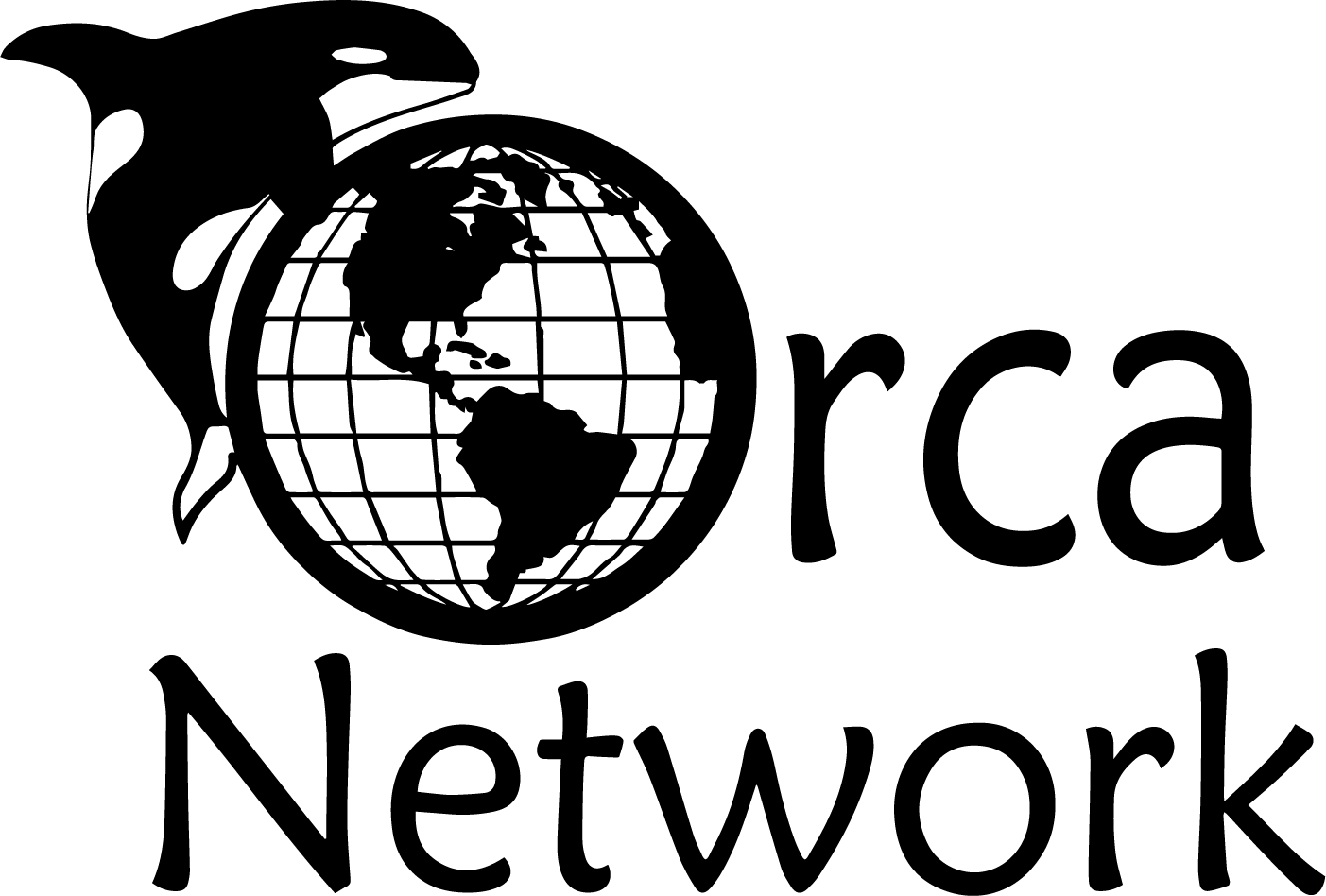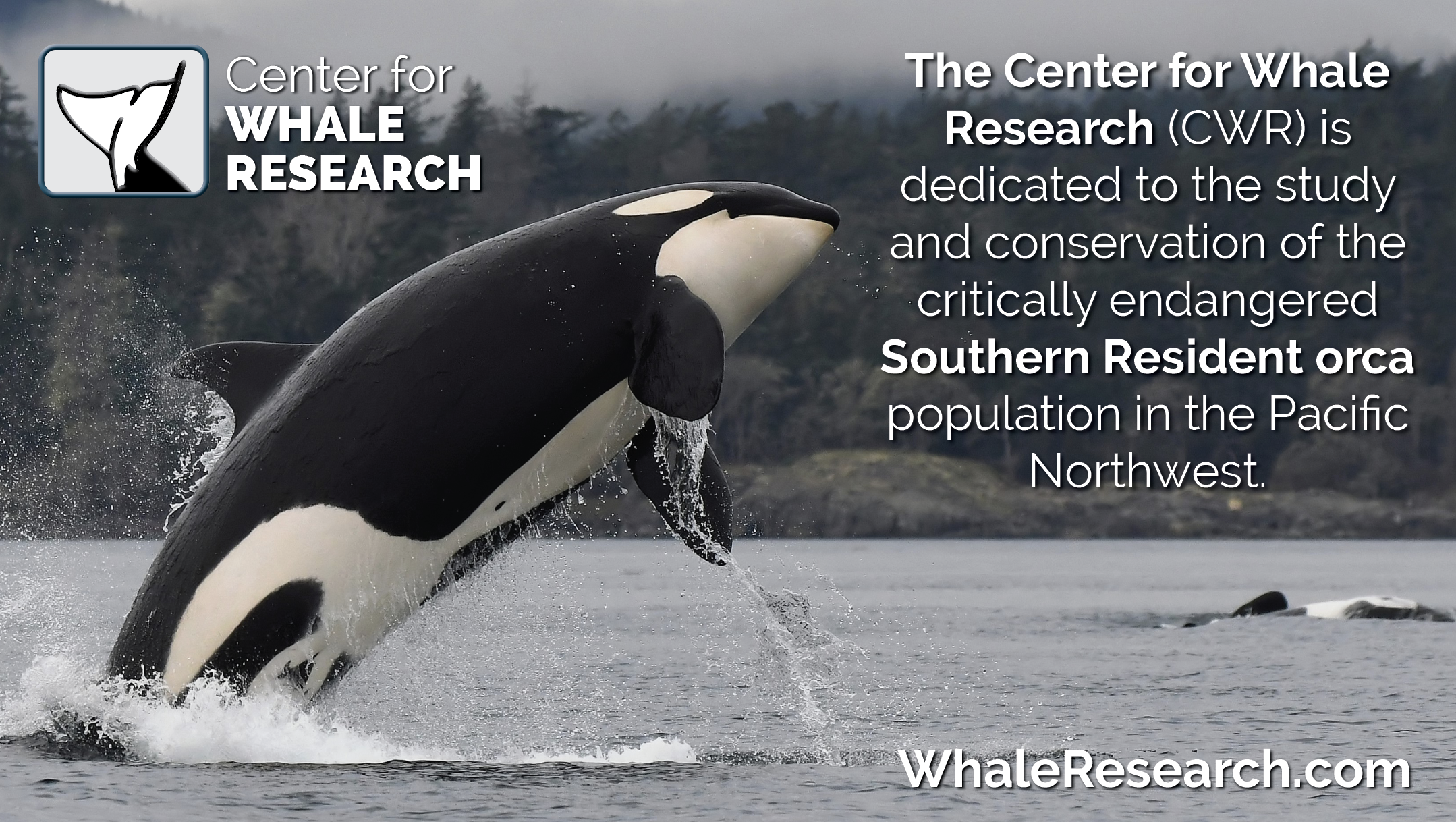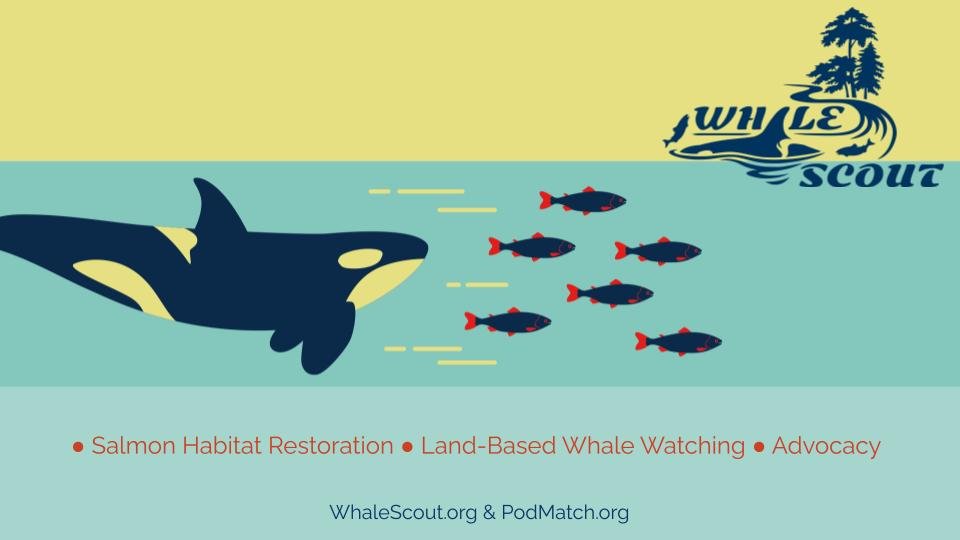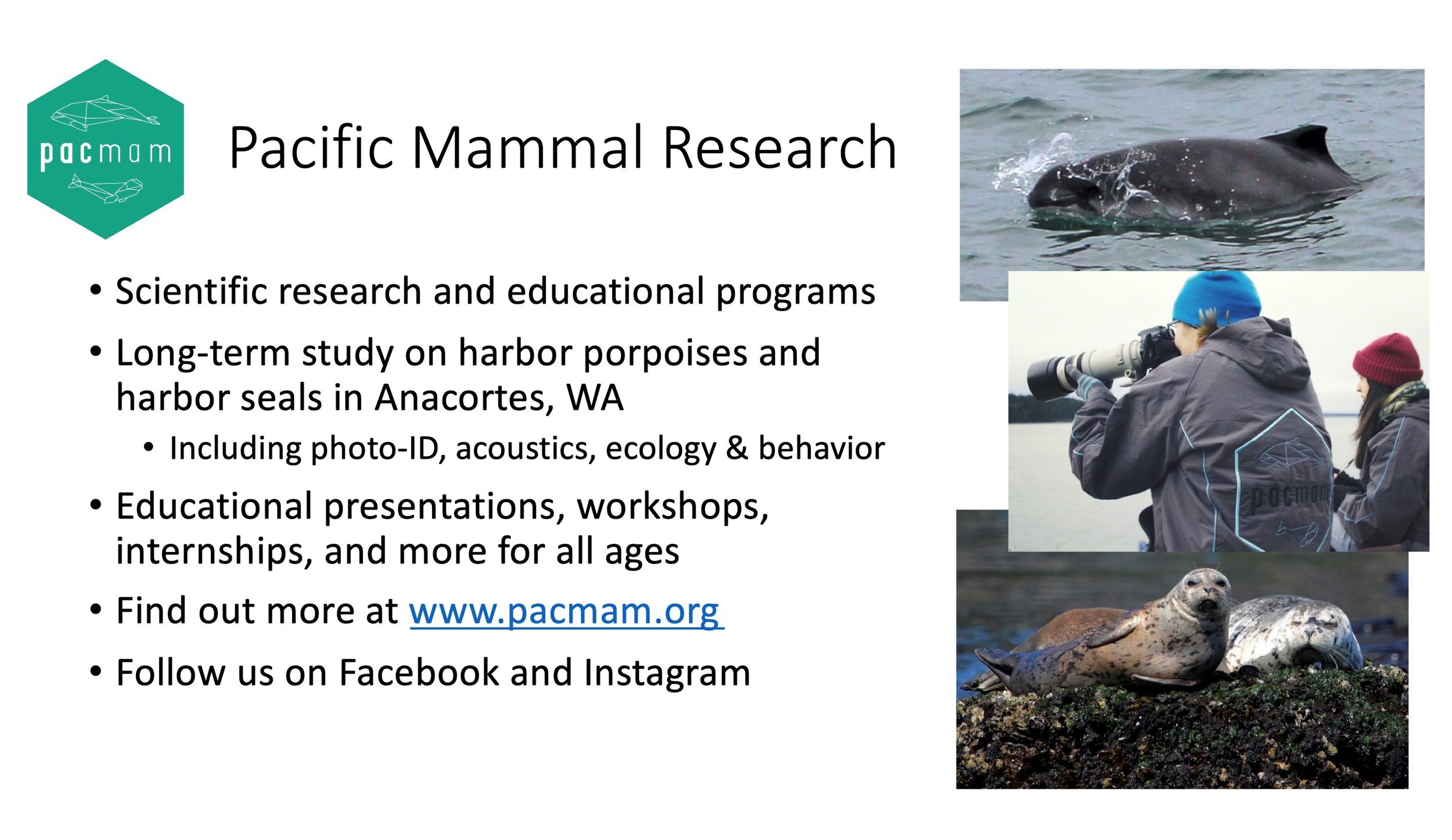Ways of Whales 2024 Learning Lobby
Ways of Whales provides us with the opportunity each year to highlight all of our wonderful Pod Partners and thank them for the great work they do. We believe in the power of unity and working together for a common goal, and we are so grateful for our many partners with the shared vision of a healthy Salish Sea.
The Orca Salmon Alliance (OSA) comprises multiple regional, national and international groups with diverse interests and areas of focus. Our collaborative structure allows us to advocate on a variety of issues under our primary goal: to prevent the extinction of the Southern Resident killer whales by recovering the wild Chinook populations upon which the whales depend for their survival.
The Chehalis River Alliance is a coalition of concerned citizens, sovereign tribes, and local organizations invested in protecting the Chehalis River Basin.
Our mission is to ensure a bright future for the Chehalis River Basin’s invaluable natural resources and the people who call this region home.
47 Years of Research
Every year for over four decades, we have collected detailed demographic data on the Southern Resident killer whale population, recording all observed births and deaths. We have also gathered detailed information on the behavior and ecology of these animals, including information on where the animals are in geographic location and time, and their social behavior and foraging patterns. This dataset has provided ground-breaking insight into killer whale biology and ecology that we hope will help to inform management decisions to conserve this vulnerable and now endangered population.
Established in 1994, the Pacific Whale Watch Association (PWWA) is a community of ecotourism professionals with a shared commitment to education, conservation and responsible wildlife viewing in Washington State and British Columbia. With 30 member companies departing from 24 different locations in Washington State and British Columbia, our skilled operators are able to educate and inspire nearly 400,000 visitors per year.
In 1990 the Washington State Legislature chartered nonprofit organizations called Regional Fisheries Enhancement Groups (RFEGs) to promote, support, and realize salmon recovery programs and projects in our watersheds. Sound Salmon Solutions (originally known as the Stilly Snohomish Fisheries Enhancement Task Force), a 501(c)(3) nonprofit, is one of 14 RFEGs in the state. For 30 years we have supported salmon recovery in the Stillaguamish, Snohomish, and South Island County watersheds by connecting people to their watersheds through interactive education, hands-on stewardship and state-of-the-art habitat restoration.
Responding to stranded or injured marine wildlife throughout the Pacific Northwest, including disentangling sea lions and whales from ocean trash and fishing gear.
Rehabilitating sick and injured marine animals to give them a second chance at life in the wild.
Researching the health of Southern Resident killer whales and other cetaceans (dolphins, whales and porpoise) to inform conservation efforts.
Working with tribes and other local communities to support wildlife health and community involvement.
Educating to reduce human-wildlife conflict to promote healthy marine wildlife and healthy human communities.
Whale Scout leads the public in land-based whale watching experiences. We channel people’s interest and passion about whales into on the ground salmon habitat restoration projects protecting the primary food source of struggling orcas in Puget Sound.
Join the City of Bothell and Whale Scout at a volunteer event to restore habitat at the Former Wayne Golf Course. Click here to sign up!
Date: January 28, 2024
Time: 12:00 PM - 3:00 PM
Address: Former Wayne Golf Course
16721 96th Ave NE
Bothell, WA 98011
OBI is made up of a small group of passionate community scientists. As long-time viewers of killer whales in the Salish Sea, our initial motivation was to collect year-round data to document some of the trends we were witnessing and to make sure policy could be informed by the latest information. This included the increasing presence of mammal-eating Bigg’s killer whales as well as the increasing absence of the endangered fish-eating Southern Residents. Our first two peer-reviewed publications were on these topics and were only possible due to buy-in from our partners on OBI’s core values of openness and collaboration.
Founded in 2011, the Friends of Lime Kiln Society, provides awe-inspiring experiences for all park visitors. This unique Lime Kiln State Park location, within the Salish Sea, affords FOLKS a wonderful opportunity to create dynamic educational activities that stem from a diverse marine ecosystem. The historic lighthouse and restored lime kilns allow visitors the ability to “walk back in time” to an era long gone.
We are 10 community marine centers collaborating on our shared vision: One Water, One Future!
Pacific Mammal Research (PacMam) is a 501c3 non-profit organization dedicated to understanding more about marine mammal populations in the Salish Sea and passing on that knowledge through scientific publications and education.
Mission: To understand and protect harbor porpoises and harbor seals of the Salish Sea through innovative scientific research, engaging educational outreach, and hands-on learning opportunities.
Vision: We aim to provide information that is crucial to creating biologically meaningful conservation measures for marine mammals of the Salish Sea, and build a community that is engaged in protecting the marine world they depend on.
The Problem
The Southern Resident killer whales are one of the most studied and well-known endangered species on the planet yet efforts to save them have been largely unsuccessful. All too often, research is not being translated into meaningful policy or action; instead, science is put on shelves, rather than into the hands of those charged with their recovery.
The Challenge
Reverse the declining trend in the population of Southern Resident killer whales and create a stabilized and balanced ecosystem to serve as the foundation for their recovery.
Our Solution
Fill knowledge gaps through high-impact, non-invasive conservation research, arm policymakers with the latest available science, underpinned by the urgency for recovery, engage the public with accessible and digestible information, initiate opportunities for direct engagement with policymakers to create accountability.
At the northeast tip of the Olympic Peninsula, the Port Townsend Marine Science Center welcomes people to discover and delight in the incredible biodiversity of the Salish Sea. Since 1982 we have introduced hundreds of thousands of people to the wonders of the Salish Sea through our exhibits and programs at Fort Worden State Park and, since 2022, at the Flagship Landing building in downtown Port Townsend. Why? Because these waters are amazing—beautiful, dynamic, and brimming with life—and because humans and oceans are interconnected. Our survival depends on healthy seas and oceans worldwide.
The Whale Museum, located in beautiful Friday Harbor, Washington, opened to the public in 1979 as the first museum in the country devoted to a species living in the wild. Today, our museum continues to promote stewardship of whales and the Salish Sea ecosystem through education and research.
WMMSN volunteers collect data and samples from stranded deceased marine mammals, investigate and monitor stranded and distressed marine mammals, and help educate the public about how to safely view marine wildlife.
UPCOMING EVENTS:
Volunteer Training coming up in April. Visit wmmsn.org for a date to be announced.
We will be participating in Wings Over Water Festival i Blaine on March16th. https://birchbaywa.org/wings-over-water/
Since 1982, we have advocated for birds and protection of their environments on Whidbey Island in Puget Sound, Washington State.
We are the Whidbey Camano Land Trust, an independent, nationally accredited, 501(c)3 nonprofit organization, which has been protecting the best of these islands since 1984. During that time we have partnered with landowners and island communities to help expand county and state parks, protect natural areas and local family farms, increase trail and beach access, and protect and restore fish and wildlife habitat.
The Skagit Fisheries Enhancement Group was formed in 1990 to involve our communities in habitat restoration and watershed stewardship in order to enhance salmon populations. As a nonprofit and non-governmental organization, we have unique cooperative relationships with local landowners, conservation groups, government agencies, and tribes.
Through the hard work of our volunteers and professional restoration staff, we have been recognized as a local leader in salmon restoration. As one of 14 Regional Fisheries Enhancement Groups in Washington State, we are part of a coordinated effort to educate and involve the public in salmon enhancement activities across the state at the community level.
The Salish Sea School is on a mission to awaken curiosity and deepen connections with the sea through outdoor adventure, research, and action programs. Enrollment is now open for Salish Sea bird tours, art classes, and summer camps!




















